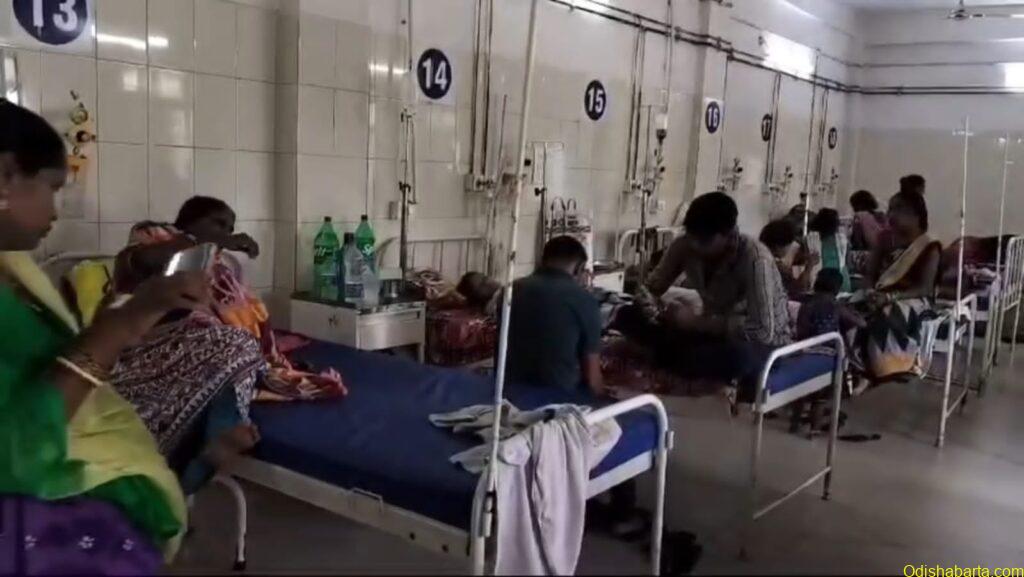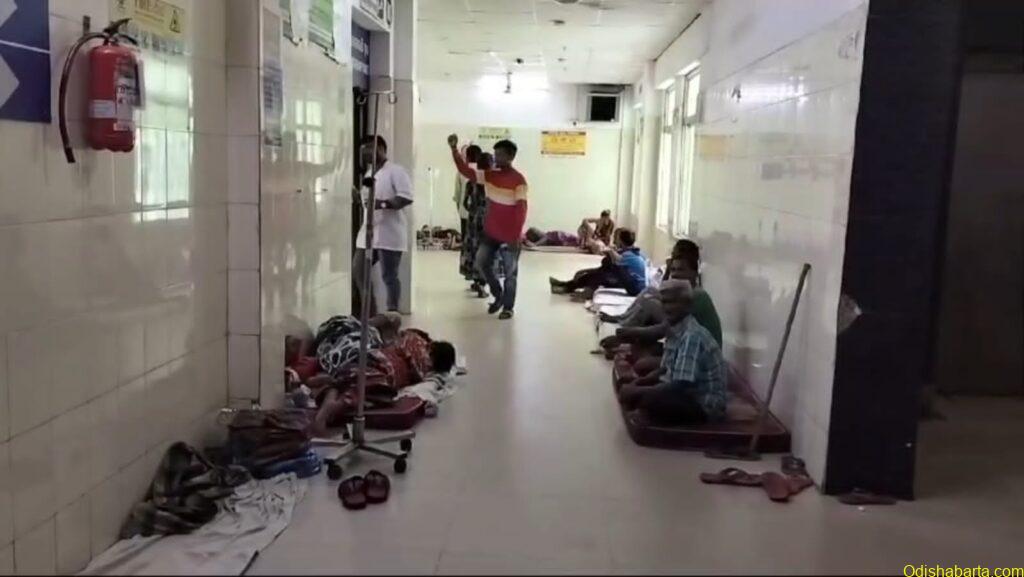Malaria on the rise in endemic zone Rayagada: slender health services

Badal Tah, Rayagada, July 14, 2024: After recent diphtheria in Kashipur & diarrhoea in Muniguda regions, a tentacle of malaria has spread throughout the district, especially affecting the children in the residential schools managed by ST-SC Development Department of Govt of Odisha. Even one girl student studying in class VI named Manisha Manding(12) belonging to Durgapadu residential school under Rayagada block died of malaria. Sources mention that she was sent home by school authorities after preliminary treatment at school. She was never taken to hospital. As she was seriously ill, she succumbed to the killer disease. Similarly the district headquarters hospital is inundated with scores of malaria patients. Serious patients have been referred to Brahmapur MKCG medical college & SLNMCH at Koraput. Out of 214225 tests conducted during last five months from January to May, there are 2508 malaria positive patients. June might witness a surge of around 3000. Though malaria parasite “plasmodium falciparum” is prevalent in all parts of district, it is controllable; but the disease has become dreaded because of slender health services and callous attitude of concerned govt authorities.

Lack of strong surveillance systems and continuous reporting, placing trained human resources in remote geographies, innovating with vector-control methods, and diagnostics and drugs for better treatment and care-all of these have led to the present catastrophe. Rapid-diagnosis kits (similar to pregnancy-testing kits) are in short supply. There is also a disruption in the supply of impregnated bed nets like long-lasting insecticidal nets (LLIN), considered a global best practice to prevent the disease. Durgama Anchalare Malaria Nirakaran (DAMaN), a multi-component malaria intervention in hard-to-reach villages, which drew appreciation from WHO, is now a fiasco in this district. Affected villagers are left at lurch or to traditional healers’ recourse when malaria strikes and they are definitely no match for a killer disease like malaria.

The highest 9,925 cases were reported in Rayagada during last financial year. The annual parasite index (API) during 2022 was over 10 in Rayagada, the highest in Odisha, where it was 0.52. In spite of this the district administration took hardly any step to contain this. After its wide spread, the district administration in July has casually published a leaflet on Malaria, Dengue & Diarrhoea(MDD) & initiated an integrated health survey from July 1st to August 31st.
“In fact, these kind of preventive steps should have been initiated much before the onset of monsoon. District administration , engrossed with the election process, was not sensitive to this pertinent issue. Malaria is not just a biomedical problem but a socioeconomic issue, claiming the maximum lives in a place where health systems are either absent or in a derelict state. A community-based approach is the need of the hour, with the focus on screening and treating malaria-positive patients living in high-transmission areas through camps. Important in this context is understanding the link between malaria and malnutrition, the treatment of affected children in residential hostels and in villages too. Mostly landless or marginal tribal farmers subsist by banking on forest produce. A malarial attack is an emergency for them in more ways than one”, said Shyam Kumar Dash, Ex-Rayagada College Union President & Odisha Paschim Prant General Secretary of SAKSHAM, a national level organisation for empowering the disabled. Every other social development programme in the region will be undermined if malaria is not tackled on a priority basis, said Dash.






